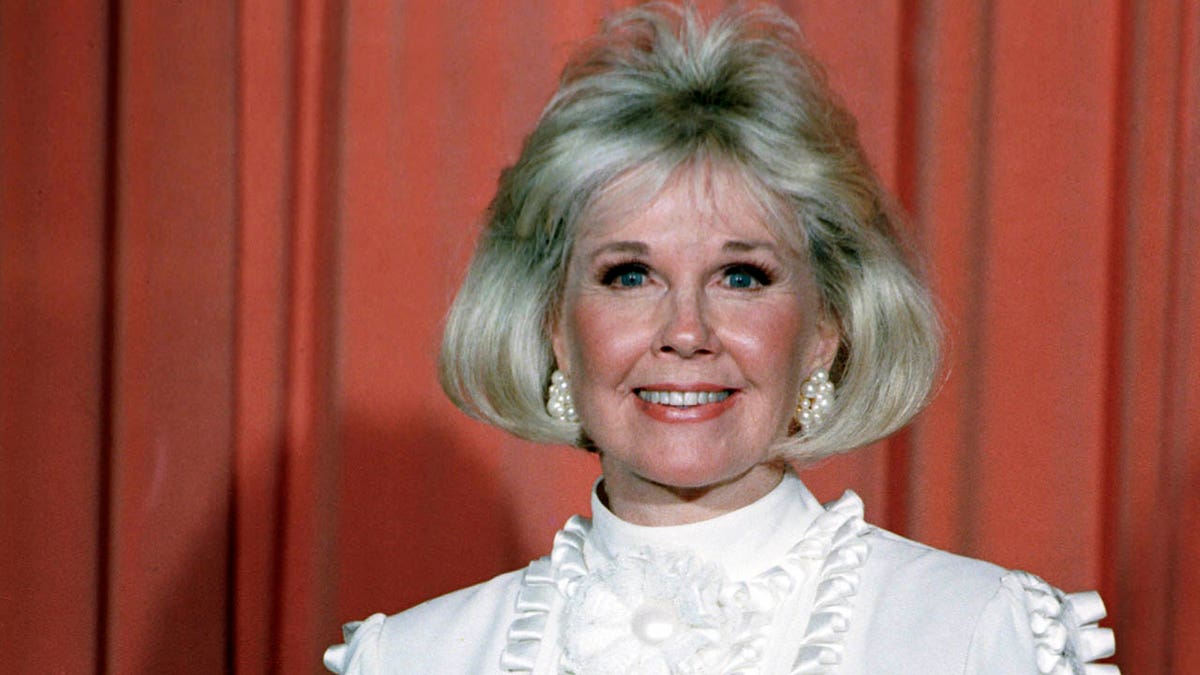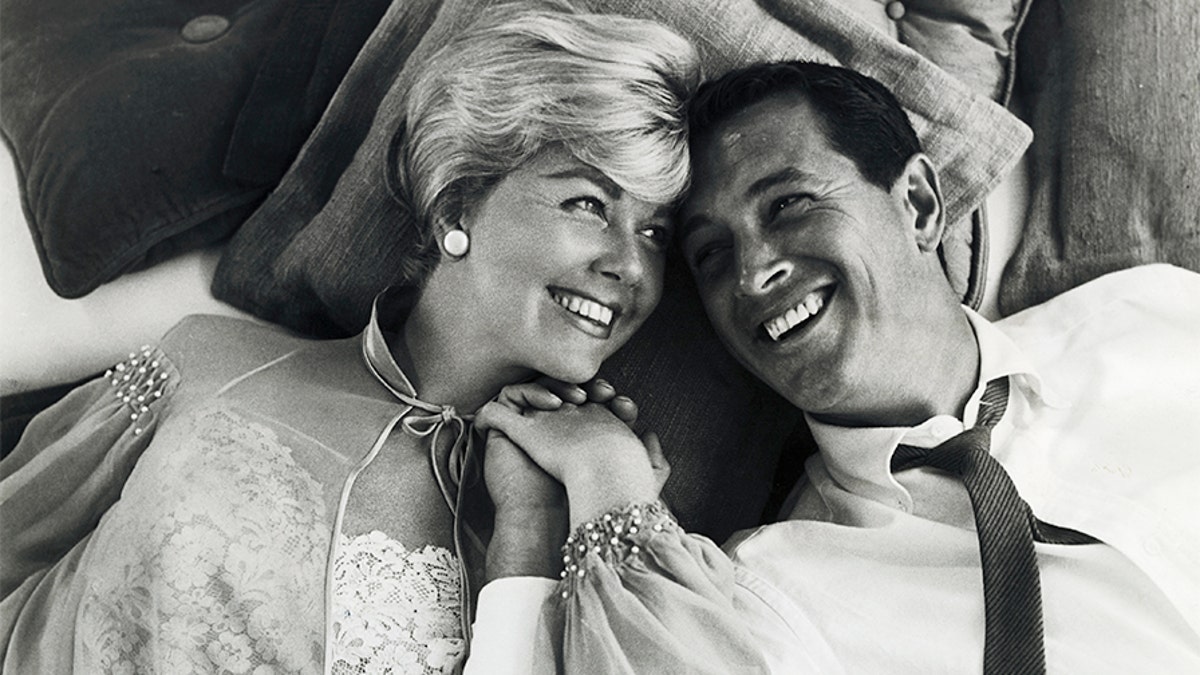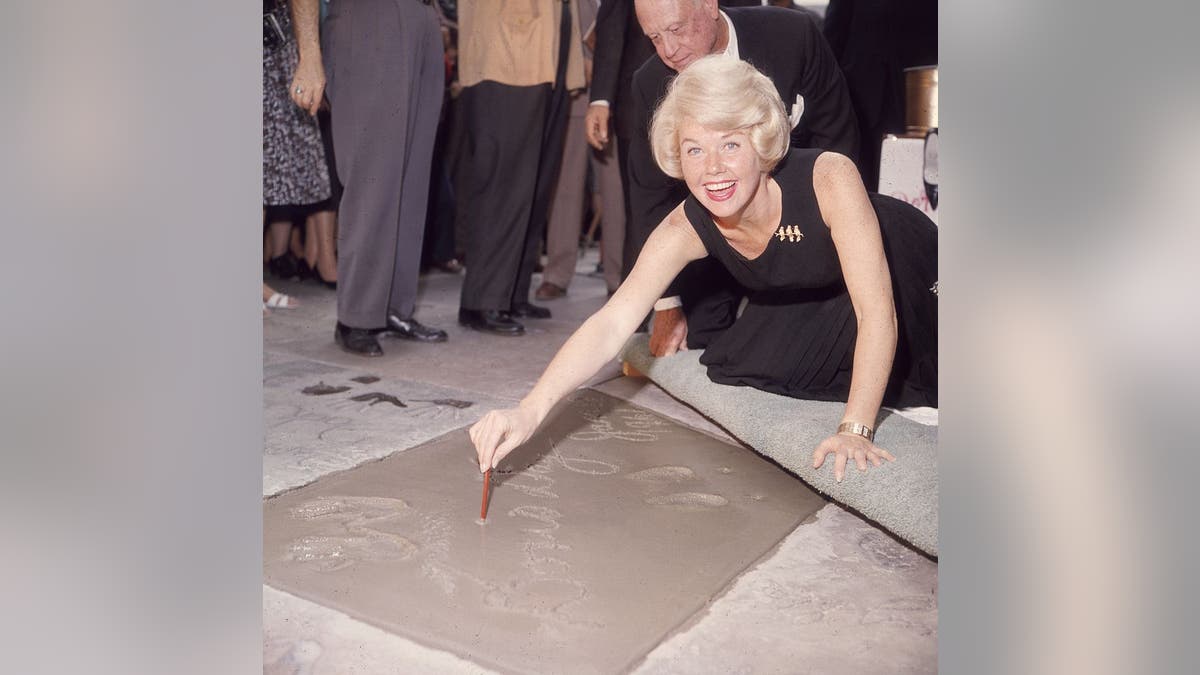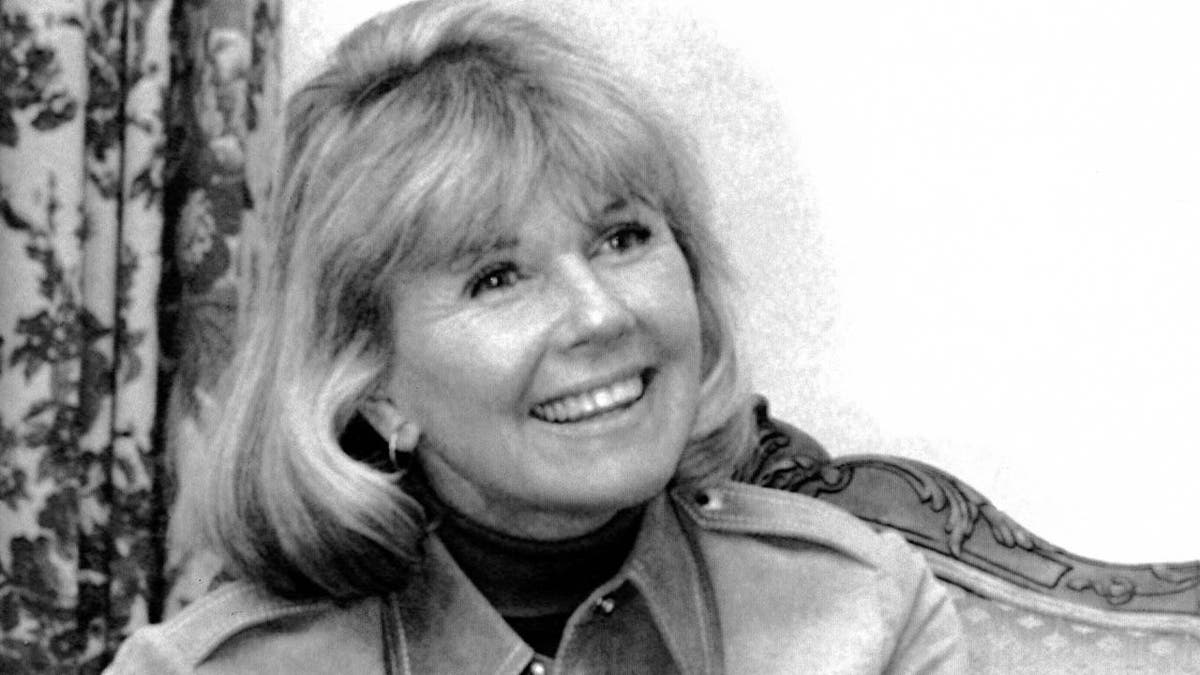Fox News Flash top headlines for June 9
Fox News Flash top headlines for June 9 are here. Check out what's clicking on Foxnews.com
In the 1950s and ’60s, Doris Day was America’s box-office sweetheart. But she spent her final days being manipulated by those around her, sources who were close to the legend allege.
Day’s death on May 13 has opened a rift between family and friends who accuse one another of mistreating the star.
Her only grandchild, Ryan Melcher, issued a Facebook post claiming Day’s longtime manager, Bob Bashara, had banned him from seeing his reclusive grandmother, who was 97 when she died.
It was all the more damning because Ryan — whose father was Day’s son, Terry, who died in 2004 — had never publicly spoken about the actress, known for such movie classics as “Pillow Talk” and “That Touch of Mink.”
Ryan, a real-estate agent in his grandmother’s chosen home town of Carmel, Calif., claimed Bashara had fired board members from Day’s eponymous animal-rescue foundation and replaced them with his family members. These accusations were denied by Day’s rep.
Close friends of the star paint a lonely picture of her last days.

Doris Day, seen Jan. 28, 1989, in Los Angeles, died May 13, 2019, at age 97. (Associated Press)
One former employee told The Post, “Doris spent most of her last 10 years in her bedroom or the kitchen. She barely used the rest of the house . . . She would only want to talk about [her] dogs or hear about what fan mail she had.”
“Doris spent most of her last 10 years in her bedroom or the kitchen. She barely used the rest of the house. ... She would only want to talk about [her] dogs or hear about what fan mail she had.”
Mike DeVita was a fan of Day’s for 60 years, and the pair swapped more than 500 letters, exchanging very personal details of their lives. He last received a letter from the star in April.
“Doris was very trusting. She was manipulated all her life, usually by her husbands,” said DeVita. “She was looking for the father she never had with her husbands — and even Bob.”
Day, who grew up in Cincinnati, had publicly recalled how, at the age of 10, she discovered that her father, a music teacher, was having an affair with the mother of her best friend.
“This had a profound effect on her,” said DeVita.
Day was allegedly beaten by her first husband, band leader Al Jordan, while pregnant with their son, Terry. That marriage ended in divorce, as did a second one, to saxophonist George Weidler, who allegedly couldn’t handle his wife’s fame.

Doris Day and Rock Hudson in "Pillow Talk." (Getty Images)
Day’s third husband, producer Marty Melcher, infamously squandered her $20 million fortune — a betrayal she discovered only when he died in 1969. Although she had stopped making movies, the actress was forced to make “The Doris Day Show,” on CBS, to pay off her debts.
“People think, because of Doris’ movies, she was always happy-go-lucky,” said DeVita. “She had a lot of tragedy.”
“People think, because of Doris’ movies, she was always happy-go-lucky. She had a lot of tragedy.”
The star married one more time, in 1976, to maitre d’ Barry Comden. They split in 1981, and he publicly admitted to being jealous of her beloved dogs.
Day’s longtime pal Carol Johnson recounted a conversation with the actress about her failed romances. “One day we were talking about her husbands, and she said, ‘Boy, I know how to pick ’em, don’t I?’ ” Johnson recalled. “She [originally] thought being married was the way to live, but said ‘it was so confined.’ ”
The one person she could count on was her son, Terry, who had been adopted by her third husband.
Beach Boy frontman Mike Love claimed in his memoir, “Good Vibrations,” that Day may have saved her son from being murdered by Charles Manson — who had pitched Terry, a music producer, some of his songs.
After Terry turned him down, Manson showed up at the producer’s home at 10050 Cielo Drive in Los Angeles.
“[Terry] had told [Day] about Manson — and about some of his scary antics, his brandishing of knives, his zombie followers — and that Manson had been to the house on Cielo, and she insisted he move out,” Love wrote.
Seven months later, on Aug. 9, 1969, several Manson “family” members murdered Sharon Tate and four other victims at Melcher’s former home.
Terry passed away from cancer in 2004, at the age of 62.
“The worst thing was when her son, Terry, died,” Johnson said. “That was a huge loss for her.”
“The worst thing was when her son, Terry, died. That was a huge loss for her.”
After that, Day turned to her fans and people who worked for her.
“She had six or seven close friends, who, for the most part, were still there when she died.
But the fans became the family she never really had,” said DeVita.
Bashara, a veterinarian, joined Day’s employ 20 years ago and soon became her business manager as well as the head of her foundation.
But in 2013, Sydney Wood, Day’s former bodyguard and close confidant, told the Mail Online: “Doris isn’t what she used to be, and she’s now confined to her house for much of her days.

Doris Day smiling as she signs her name in cement by her handprints, in Hollywood, Calif., Jan. 19, 1961. (Getty Images)
She used to have the right people taking care of her. But her house is full of different people now. They’re with her because she’s Doris Day. I worry they are not looking after her well enough.”
Shortly after, in 2014, Day made her last public appearance at an event for her foundation. There, she explained that she was exercising every day, adding, “I just feel young.” (She previously had not made a public appearance since the 1989 Golden Globes).
Her grandson, Ryan, said he only learned of her death on social media.
Via Facebook, he claimed that he had not spent much time with his grandmother since childhood due to his father’s bitter divorce from his mother, Jacqueline Carlin, in 1997. But, he added, Day invited him to dinner after Terry’s death. When he arrived, Bashara blocked him from seeing her.
“She had been so happy to talk to me and we were both excited for our upcoming dinner together just a week before, and this man was clearly manipulating the situation,” Ryan wrote.
He added: “Any and all communication was cut off from that point on . . . I later learned that [Bashara] had fired all the longstanding members on my grandma’s Foundation board and appointed his direct family as the new board members. It seemed I was not the only one who had been cut out.”
According to Charley Cullen Walters, Day’s publicist for the past decade, it was the star’s decision not to see Ryan.
But, DeVita admitted, “The story with the grandson is so weird . . . Doris really wanted to reconnect.”
Now, a neighbor of Day’s said, insiders are wondering what happens with the star’s estate, including her $300,000 Carmel home and the foundation, which, according to 2017 tax returns, had total assets of $4,586,346.
“There is a lot of bad feeling surrounding the last few years of Doris’ life and how friends and family were pushed out,” the neighbor said. “There’s plenty of people wondering just how Bob is going to profit from all this.”

Doris Day, on Jan. 6, 1976, answers questions in New York, during an interview on the book "Doris Day: Her Own Story," written by A.E. Hotchner. (Associated Press)
“There is a lot of bad feeling surrounding the last few years of Doris’ life and how friends and family were pushed out.”
Bashara did not reply to requests for comment, nor did Ryan Melcher.
“I saw Bob protecting Doris first hand . . . He’s always been very careful to follow Doris’ wishes to support the foundation,” said Walters.
CLICK HERE TO GET THE FOX NEWS APP
“Doris did have people who tried to take advantage of her, including her husbands,” Walters added. “But I don’t want her to be remembered for these tragedies.”
Indeed, Day would have wanted nothing to do with the chaos.
Bashara has said the star specified in her will that she wanted no funeral service or grave marker, and that she wanted her fortune to go to the Doris Day Animal Foundation. (No will has yet been publicly filed.)
“In the last 20 years of her life, all she cared about was her animals,” said the neighbor. “She trusted animals more than she did humans. I don’t blame her.”














































